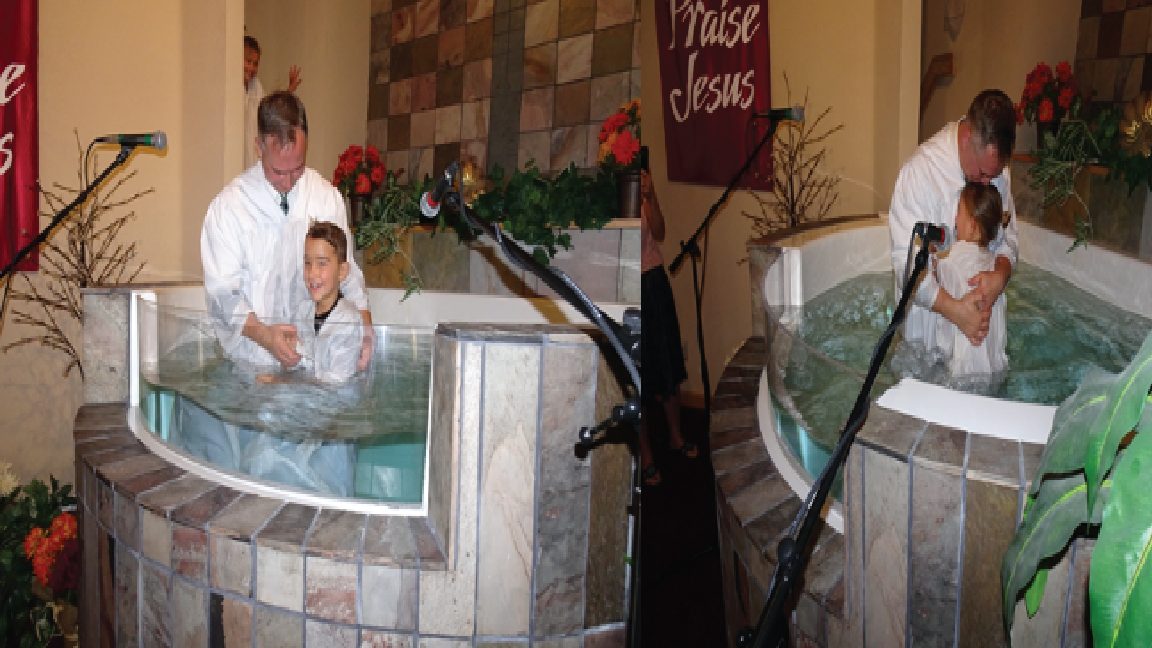By Bob McAlpine … I am an active member of the Seventh-day Adventist Church (and a pastor too!) because of the adults who shared their lives with me as a teenager and showed me that a real, life-changing relationship with Jesus is possible. They wanted me to play guitar in the praise band with them even though someone had to teach me every lead part. They wanted me to go play laser tag with them on Saturday night even though I wasn’t old enough to drive. They wanted me to go with them on church retreats even though I was a know-it-all Bible nerd. They did not preach at me. They did not browbeat me or manipulate me. They showed me with their lives that Jesus was more precious and more powerful than any distraction offered by the world.
This group of young adults—college graduates just getting started in their careers—shared how their lives had been changed when they met Jesus. As a shy, nerdy teenager, I heard stories about how partying during college led to misery instead of happiness and how career “success” was worthless without Jesus. I listened while my friends talked about Jesus turning their despair into peace. I got to see firsthand how their lives were filled with joy no matter what their circumstances were. When I was sixteen, I did not wonder if God existed or if church was important because I was surrounded by friends whose lives demonstrated that He does and that it is.
I knew as much about the Bible as my friends who were at least ten years older than me, but their experience with Jesus was far more valuable than whatever biblical or doctrinal knowledge I had managed to cram into my head. My thoughts, attitudes, desires, and actions were not changed by what I knew about God and the Bible. It was not until I had my own encounter with Jesus and began to surrender my life to Him that change became possible for me. I persisted in both learning about God and pursuing a relationship with him because what I could see in the lives of my friends made me confident that my persistence would be rewarded.
Sadly, my experience seems to be the exception rather than the rule. As a pastor, I hear from many church members whose adult children no longer attend church because of negative experiences when they were teenagers. Sometimes those children, who are often close to my age, are attending a church on Sunday and simply want nothing to do with the Seventh-day Adventist Church.
Although every person’s story is unique and each person is responsible for their own choices, I believe that many people—especially those raised in Adventist families—leave our denomination because they do not experience any connection between what they learn from us and the power of God to change lives. Imagine attending church for your whole life, learning “the truth” about Sabbath, the state of the dead, and the investigative judgment without ever encountering Jesus! Many people my age report that this is their experience. I do not think that I would want to hang around that church very long once I left home.
For too long, it seems to me, Seventh-day Adventists have been laboring to convince both our young people and our evangelistic prospects to believe all the same things we believe while neglecting to introduce them to the God who loves them and offers them salvation. The problem facing the Seventh-day Adventist Church today is not a lack of truth or of theological depth. It is not a departure from our prophetic message or from our lifestyle standards. No, the problem facing the Seventh-day Adventist Church today is that we have forgotten how to introduce people to Jesus.
The Seventh-day Adventist Church has always struggled to keep Jesus at the center of our preaching and practice. Many point to the controversy surrounding Waggoner and Jones at the 1888 General Conference Session as a turning point in this regard, but it seems more accurate to say that 1888 simply identified the problem and we have spent the last 130 years trying to turn the ship of our faith.
One clear illustration of this problem is the truly dreadful state of the material available to prepare someone for baptism. Whether designed for children or for adults, nearly every resource is focused entirely on doctrinal or lifestyle instruction with very little attention paid to growing in a relationship with Jesus.
Believe in the Bible
Believe in Jesus
Believe in the Sabbath
Believe in the investigative judgment
Believe in the literal, visible return of Jesus
Stop smoking
Start tithing
Stop drinking
Start eating a vegetarian diet
Stop wearing jewelry
“. . . Even the demons believe that—and tremble with fear!” (James 2:19, NET) It is no surprise that many people leave the church within a few years of their baptism when they get baptized knowing a lot about the Bible, but almost nothing about Jesus. Knowledge of the truth matters much less than being changed by an encounter with the Truth.
So, what can we do as a denomination to get better at leading people to Jesus? First, we have to clean our own house by making Jesus first in our hearts; then we will be ready to help others grow in their relationship with Jesus.
If Adventists want to get better at sharing Jesus with others, we must ensure that we are making every effort to know Him for ourselves. Simply put, I am calling for revival. Pastors, evangelists, administrators, and members must all confess to and repent of our impulse to gain more knowledge of God without seeking to gain more intimacy with Him. We must combine the knowledge we already have—sound doctrine, principles for healthy living, etc.,—with a burning passion for a deep relationship.
Think about how you would behave if your favorite celebrity became your neighbor. You already know lots of facts about them: their favorite foods, music, and books. You know their political opinions and what they think is most important in life. Now you can get to know them as a neighbor. You can share a meal together. You can chat with them about daily life and ask what they think about current events. You can see how they treat their spouse, kids, and friends. You can help them with their home projects and ask them to help you too. You might even find out that you have completely misunderstood this person you have admired from afar. Adventists should be approaching Jesus just like this! He is not an unapproachable celebrity, but a next-door-neighbor who wants to know us and be known by us.
Practically speaking, this calls for renewed emphasis on both corporate and individual prayer and Bible study. While this is hardly a novel prescription its efficacy is well-established. To fully embrace this path, members of local congregations must demand that their pastors teach them to pray before they teach them any more prophecy. Pastors must gently lead their congregations to seek Jesus in Scripture rather than seeking answers or the best proof text. Administrators must prioritize spiritual growth above numerical or financial growth.
God has promised in Jeremiah 29:13 that we will find Him when we seek Him with all our hearts. When Adventists reconnect to Jesus, we will be empowered to introduce others to Him. Our connection to Jesus, and the resulting changed life, will be what attracts others to us and persuades them that Adventists might have something to add to their lives.
Introducing others to Jesus means more than teaching doctrine. Think back to my analogy of your favorite celebrity who suddenly becomes your neighbor. Learning everything about a celebrity by reading interviews is like learning doctrine; no relationship is required. Relationship develops in the context of sharing life together. So, helping someone grow a relationship with Jesus means sharing life with them and showing them how we share life together with Jesus. It means that we must, like Philip in John 1:46, invite people to “come and see.” In my mind, this requires us to prioritize passing on the practices of prayer and Bible study over doctrinal instruction. Both are important, but only one can be our highest priority.
Finally, when we seek to introduce others to Jesus, our posture matters. Christ left His throne in heaven to serve humanity (Phil 2:5-7; Matt 20:26-28) and Adventists must assume that same posture of service toward the world. This means refusing to consider ourselves superior to outsiders and instead, embrace our calling to serve them as Jesus serves us. We must demonstrate our willingness to leave our comfort zone and pour out our lives for others, instead of demanding that others leave their comfort zones to hear us preach to them.
True change is only possible when Jesus is central to our lives as Seventh-day Adventist Christians. When the power of the Holy Spirit is obvious to everyone because they can see the changes, He has wrought in us, our teaching on doctrine and lifestyle will be full of life and hope. Here is my final word: to close the gap between our profession and our practice, we simply need to make Jesus, all.
–Bob McAlpine is a pastor in the San Luis Valley district in Colorado. Email him at: [email protected]


